Chilling images of destroyed planes after air strikes at Yemen’s main international airport
Pieces of destroyed aircraft have been pictured strewn across the tarmac at Yemen’s main international airport.
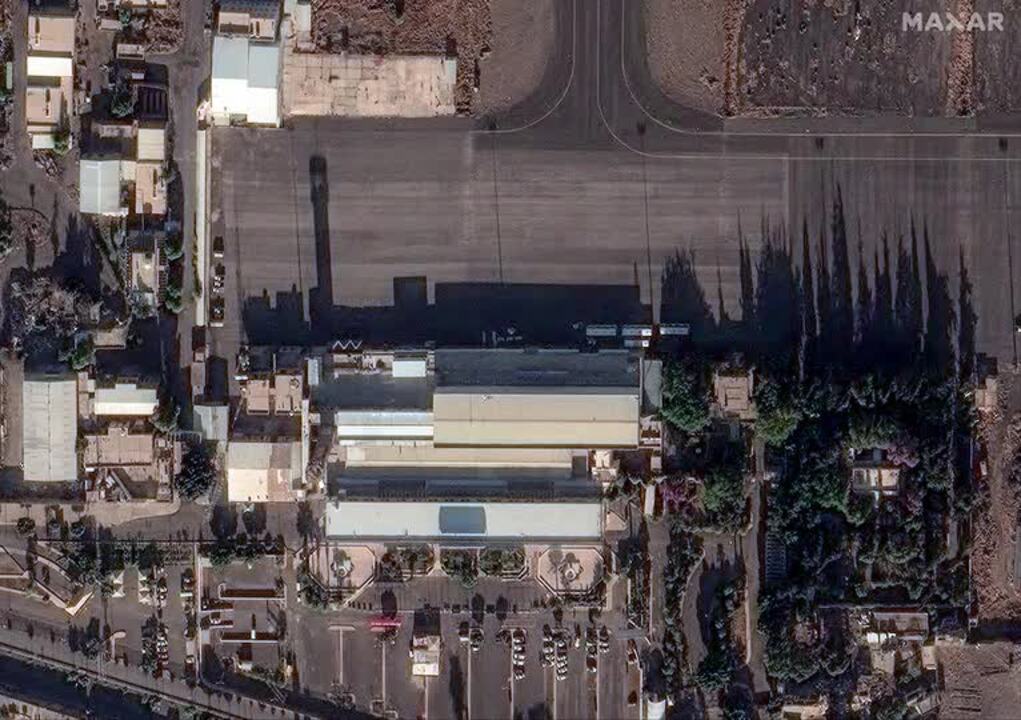
Blackened aircraft pieces have been pictured strewn across the tarmac at Yemen’s main international airport after Israeli air strikes.
Some commercial planes at Sanaa International Airport in the rebel-held capital Sanaa were barely recognisable in photos documenting the aftermath.
Noses, tails and wings of planes could be seen ripped from destroyed fuselages.
Some images showed aircraft engulfed in flames and smoke.
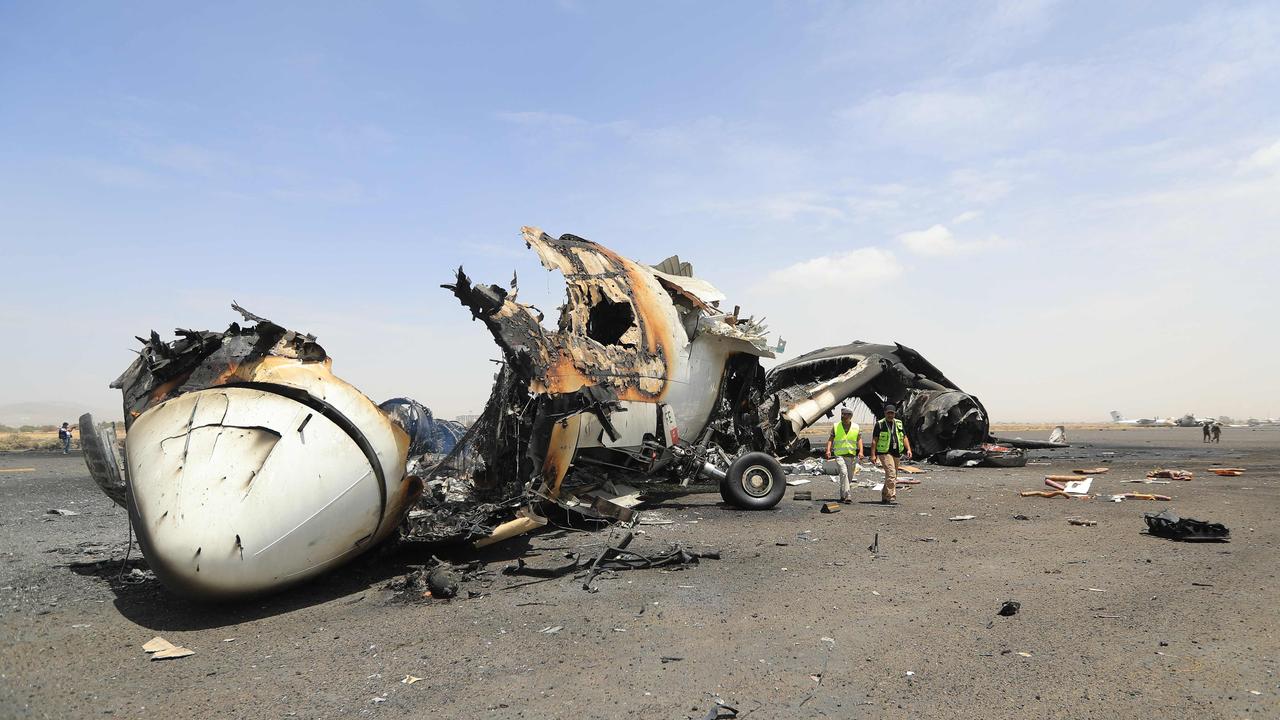
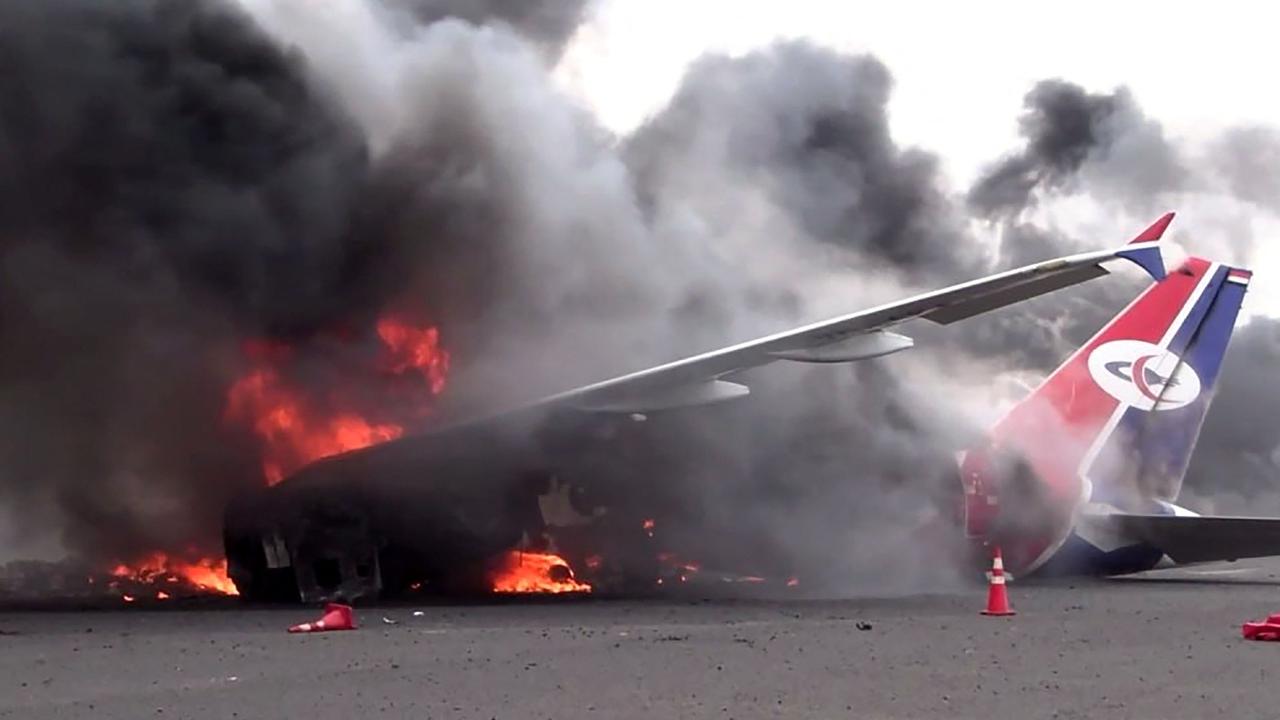
The Israeli attack on Sanaa on Tuesday (local time) came after a missile launched by the Iranian-backed Houthi movement landed near Tel Aviv’s Ben Gurion Airport on Sunday (local time). It left a large crater near a car park and flights were halted.
Before the strike on Sanaa Airport, people had been told to evacuate the area.
Afterwards, an Israeli military statement said that “fighter jets struck and dismantled Houthi terrorist infrastructure at the main airport in Sanaa”.
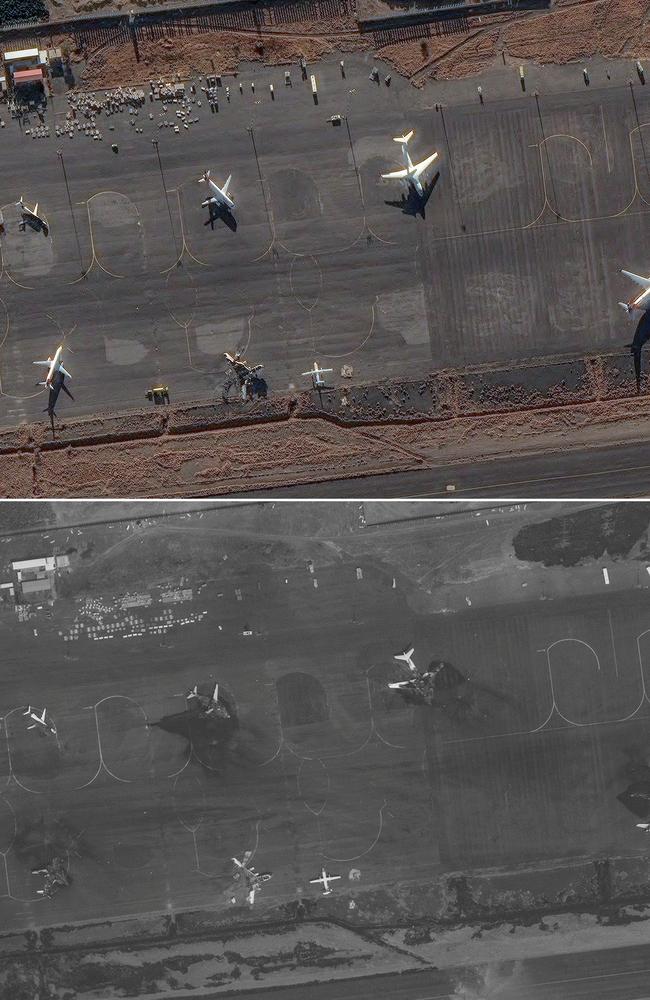
The attack destroyed terminal buildings and caused about $A775 million in damage, according to Sanaa Airport director Khaled alShaief.
He said six planes in total had been destroyed.
“Around $500 million [USD] in losses were caused by the Israeli aggression on Sanaa airport,” Mr alShaief told the rebels’ Al-Masirah television channel.
“The enemy destroyed the terminals at Sanaa airport, including all equipment and devices,” he said, adding that a warehouse was also “completely levelled”.
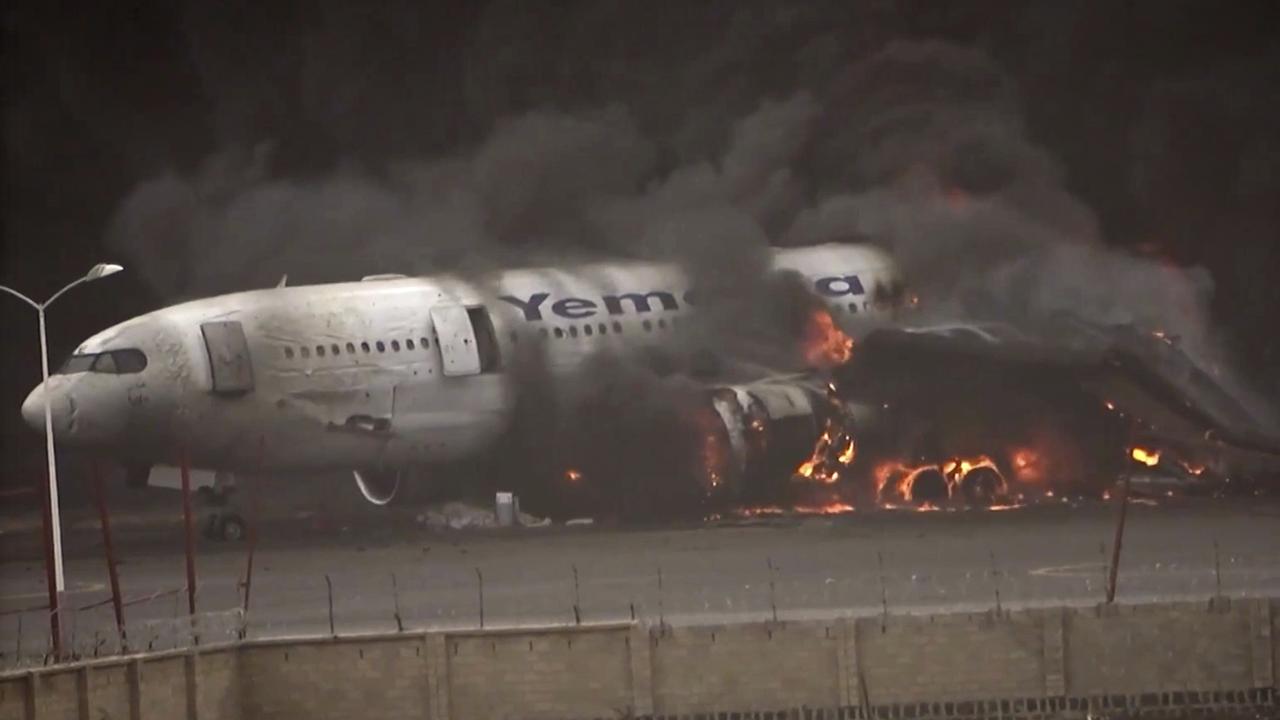
The national carrier, Yemenia Airways, said it lost three planes.
The airline said it “strongly condemns” the “barbaric attack” and that its aircraft at Queen Alia Airport in Jordan’s capital Amman would help during the disrupted operations.
Customers were told to “stay in touch with relevant departments to arrange and reschedule their flights”.
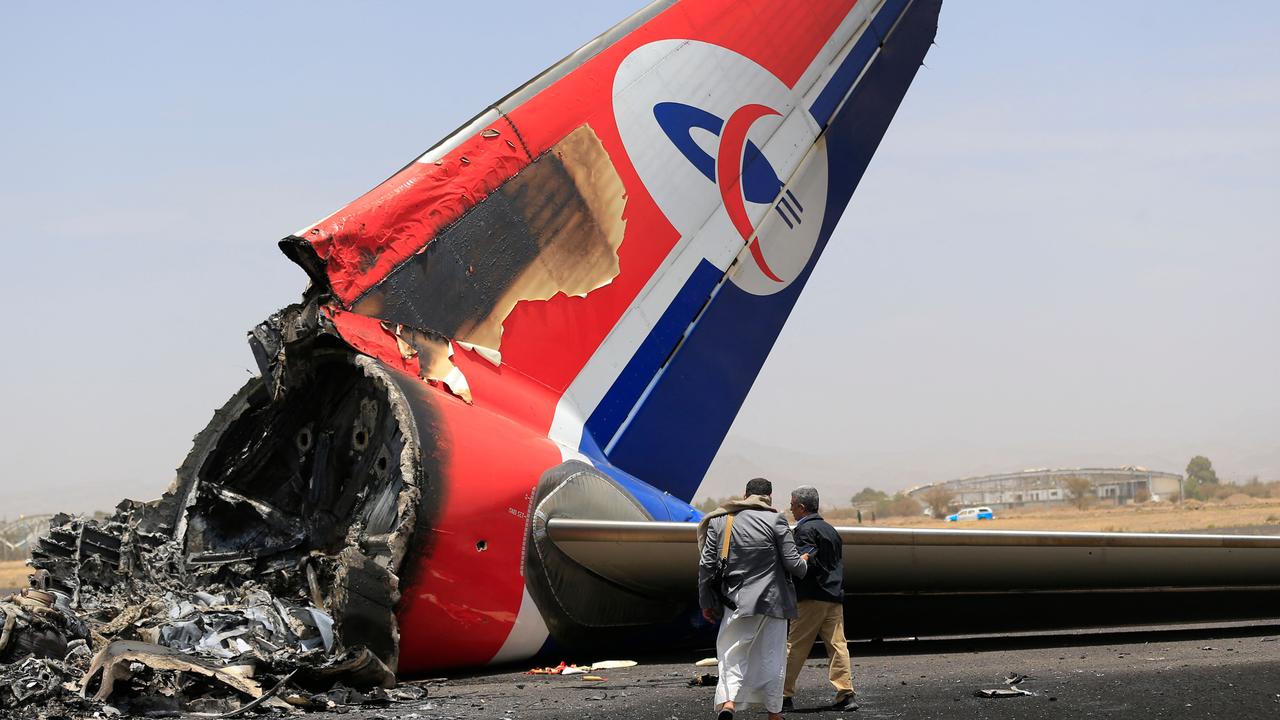
The Israeli strikes on Sanaa on Tuesday targeted power stations and a cement factory, in addition to the airport.
Three people were killed and 38 wounded, Houthis’ media said.
‘Will not be blowing up ships’: US-Houthi deal
Meanwhile, a United States-Houthi agreement was announced this week, following weeks of stepped-up US strikes aimed at deterring Houthi attacks on shipping.
US President Donald Trump trumpeted the deal, saying the Houthis had “capitulated”.
“They say they will not be blowing up ships anymore, and that’s … the purpose of what we were doing,” he said during a White House press appearance.
Scores of Houthi missile and drone attacks have drastically reduced cargo volumes on the Red Sea route, which normally carries about 12 per cent of global maritime trade.
The Houthis say their campaign — and a steady stream of attacks on Israeli territory — is in solidarity with the Palestinians.

Yemen’s Houthi rebels will continue targeting Israeli ships in the Red Sea, an official told AFP on Wednesday, despite the ceasefire.
A day after the Houthis agreed to stop firing on ships plying the key trade route off their shores, a senior official told AFP that Israel was excluded from the deal.
“The waterways are safe for all international ships except Israeli ones,” Abdulmalik Alejri, a member of the Houthi political bureau, told AFP.
“Israel is not part of the agreement, it only includes American and other ships,” he said.
The Houthis, who have controlled large swathes of Yemen for more than a decade, began firing at Israel-linked shipping in the Red Sea and Gulf of Aden in November 2023, weeks after the start of the Israel-Hamas war.
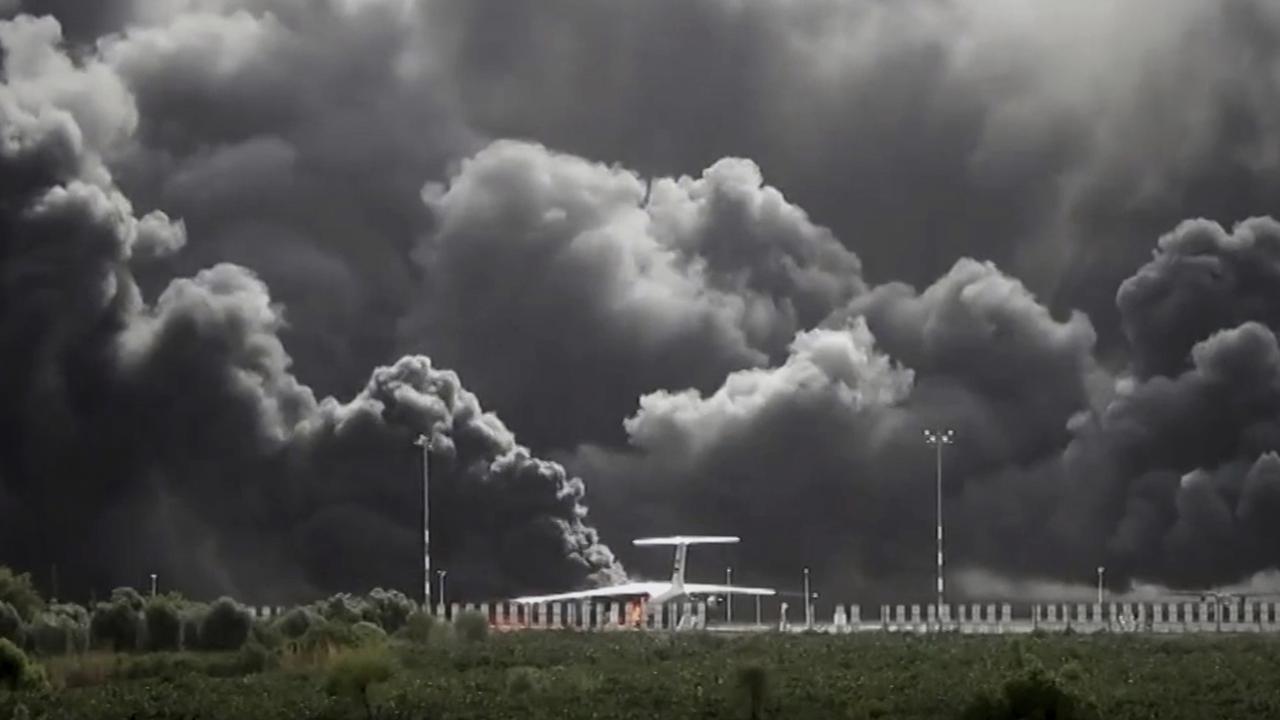
They broadened their campaign to target ships tied to the United States and Britain after military strikes by the two countries began in January 2024.
Mr Alejri said the Houthis would now “only” attack Israeli ships. In the past, vessels visiting Israel, or those with tenuous Israeli links, were in the rebels’ sights.
More Coverage
On Wednesday, Houthi spokesman Yahya Saree said their forces had launched two attacks, targeting Ramon Airport in southern Israel with two drones and “a vital target of the Zionist enemy” in the Tel Aviv area “using a Yafa drone”.
Iran’s foreign ministry spokesman earlier Esmaeil Baqaei “welcomed the cessation of US aggression against the country”, praising Yemenis for their “legendary resistance”.
Saudi Arabia also commended the deal, a foreign ministry statement said, as did the United Nations which called for “restraint and the de-escalation in and around Yemen”.





